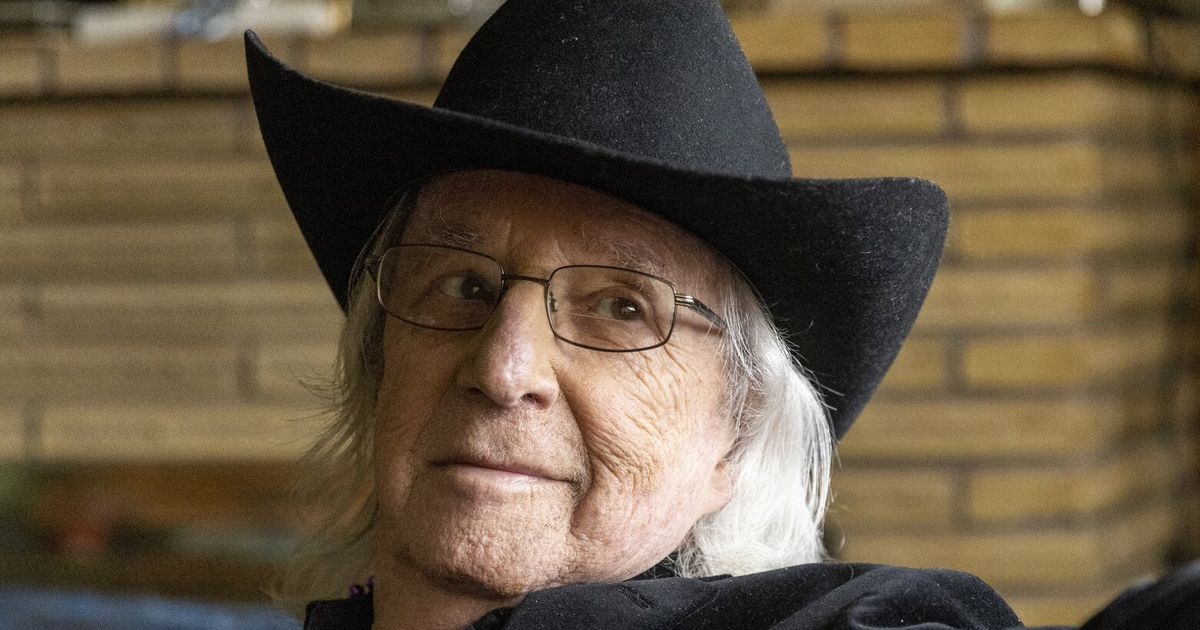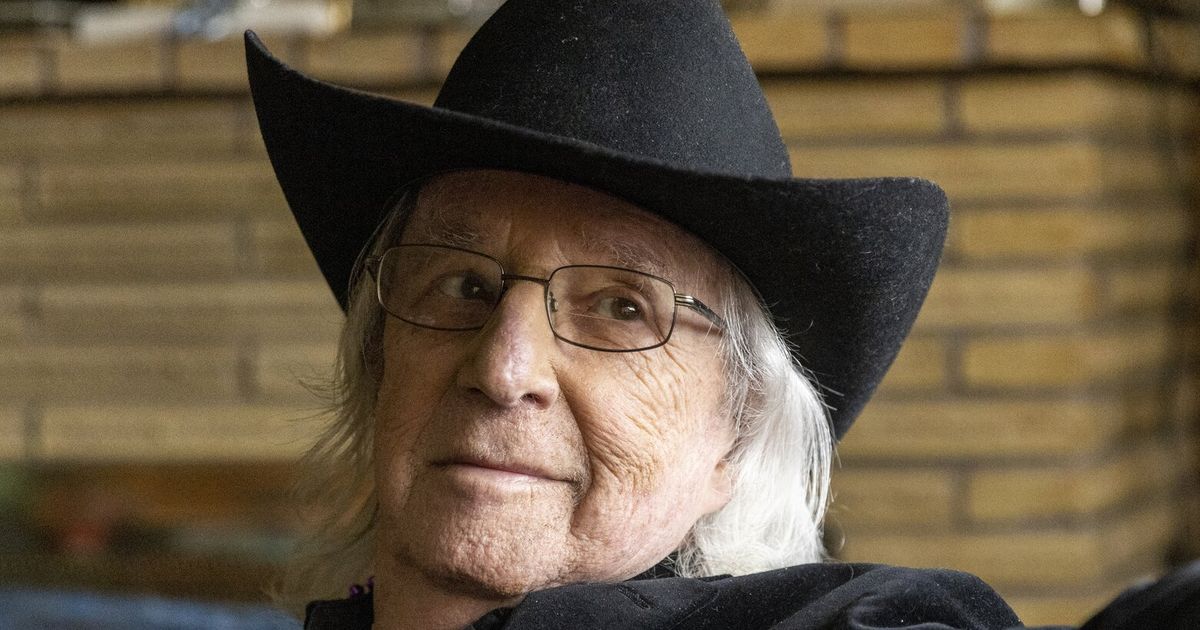
Patrick Haggerty of pioneering Washington country band Lavender Country has died.
The lifelong activist and uncompromising singer-songwriter released what is widely considered the first gay-themed country album in 1973. Though his music career, which he viewed as a vehicle for his activism, took a decades-long hiatus shortly after Lavender Country’s debut album, the Bremerton artist had been steadily gigging all over the country in recent years, after Haggerty’s music was pulled from the dustbins of time and caught the ear of a new generation. He influenced artists like queer country star Orville Peck and drag star/singer-songwriter Trixie Mattel, who covered Lavender Country’s “I Can’t Shake the Stranger Out of You.”
About a month ago, Haggerty had a stroke, forcing him to cancel a run of fall shows and, according to Jack Moriarity, a family friend who helped manage Lavender Country and played in the band, Haggerty had “pretty much been in the hospital since then.” After moving to hospice several days ago, Haggerty, 78, died early Monday morning, Moriarity and Lavender Country’s label, Don Giovanni Records, confirmed.
Released four years after the Stonewall uprising, Lavender Country’s out-and-proud songs didn’t find much of an audience beyond the Seattle gay liberation activists who heard it or saw Lavender Country play small local shows, including the first city-sanctioned Pride event, which in 1974 drew roughly 400 people to Seattle Center.
But that changed in 2014 when a small, boutique label reissued the self-titled debut from the short-lived Seattle band that went unrecognized outside the local gay community. Just about every major music publication trumpeted the historical significance of Haggerty’s music, which was ahead of its time in its celebrations of sexual freedom and fierce critiques of heteronormativity and sexism — particularly in a genre marketed to a conservative audience.
“I didn’t do music for many decades, because Lavender Country put a scarlet letter on my back and I was untouchable for a long time,” Haggerty said in an interview earlier this year. “So, I went and had another life.”
At recent Lavender Country shows, the self-described “loudmouth, queer, Marxist activist” often regaled audiences with stories from the front lines of the gay liberation and workers’ rights movements and espoused radical and inclusive politics. Between songs addressing sexual alienation and comedic homages to fellow Seattle activist Clara Fraser, Haggerty often took a heartwarming moment at local shows to acknowledge his husband and partner of 35 years, Julius “J.B.” Broughton. Haggerty is also survived by two children, Amilcar Navarro and Robin Boland.
“It’s weird, because for most my life I knew Patrick was a political activist. That’s what he’d done with his life, whether it was … running for local elections or being involved in leftist newspapers,” Moriarity said. “But I didn’t really even know about Lavender Country for a long time, because that was the footnote in his life.”
After growing up on a farm in Dry Creek, a small community west of Port Angeles, Haggerty enlisted in the Peace Corps, but was kicked out in 1966 when he was “caught in a compromising sexual position” with another man. It had a profound effect on Haggerty and helped stoke the activist flame that fueled his life’s work. “That experience changed me, fundamentally,” he said. “It set me on the path to radical activism and opened my eyes to capitalism and all its contradictions.”
With a limited audience and no real opportunities in the industry, Lavender Country dissolved in 1976, its members needing to make ends meet and pursue other projects. Being an out, gay activist in the ’70s made finding employment challenging, Haggerty said, despite his master’s degree in social work.
During the ’80s, Haggerty took part in occupations led by Seattle’s Black community that staved off construction of a new Central District police precinct and another that helped turn the abandoned Colman School into what’s now the Northwest African American Museum. He ran for Seattle City Council and a seat in the state Legislature, coordinating with the local chapter of the Nation of Islam. Though he didn’t win, both bids successfully amplified their message of Black-gay unity, Haggerty said.
Though he thought his performing days were behind him, Haggerty continued writing songs even after Lavender Country disbanded. In the 2000s, he found a lucrative niche singing classic country songs in retirement communities, doing 100 shows a year for people who knew nothing of Lavender Country. “I was singing ‘Your Cheating Heart’ to octogenarians in Kitsap County and was thrilled to finally be able to do music where I wasn’t wearing a scarlet letter,” he said.
But Lavender Country’s self-titled debut had a growing reputation among obscure record collectors and its 2014 reissue and an award-winning documentary brought Haggerty’s music to a wider audience decades after its initial release. This year Don Giovanni Records rereleased Lavender Country’s second album, “Blackberry Rose,” nearly 50 years after the band’s first record.
“So sad to hear that the grandfather of queer country, Patrick Haggerty has gone up to that big gay Honky tonk in the sky,” country star Peck wrote in an Instagram post as word of Haggerty’s death circulated. “One of the funniest, bravest and kindest souls I’ve ever known, he pioneered a movement and a message in Country that was practically unheard of. A true singular legend.”
Haggerty, a charismatic spitfire and poignant storyteller, seemed to relish the increased interest in Lavender Country and his music, which he described as “anti-fascist art tools to help us in the struggle.”
“I am, at this point, a country music item of note,” Haggerty said. “I never dreamt that would happen, but it did. And I don’t have to make any compromises. I get to be the socialist loudmouth that I am and have a career in country music, too.
“And it doesn’t get better than that, man.”







